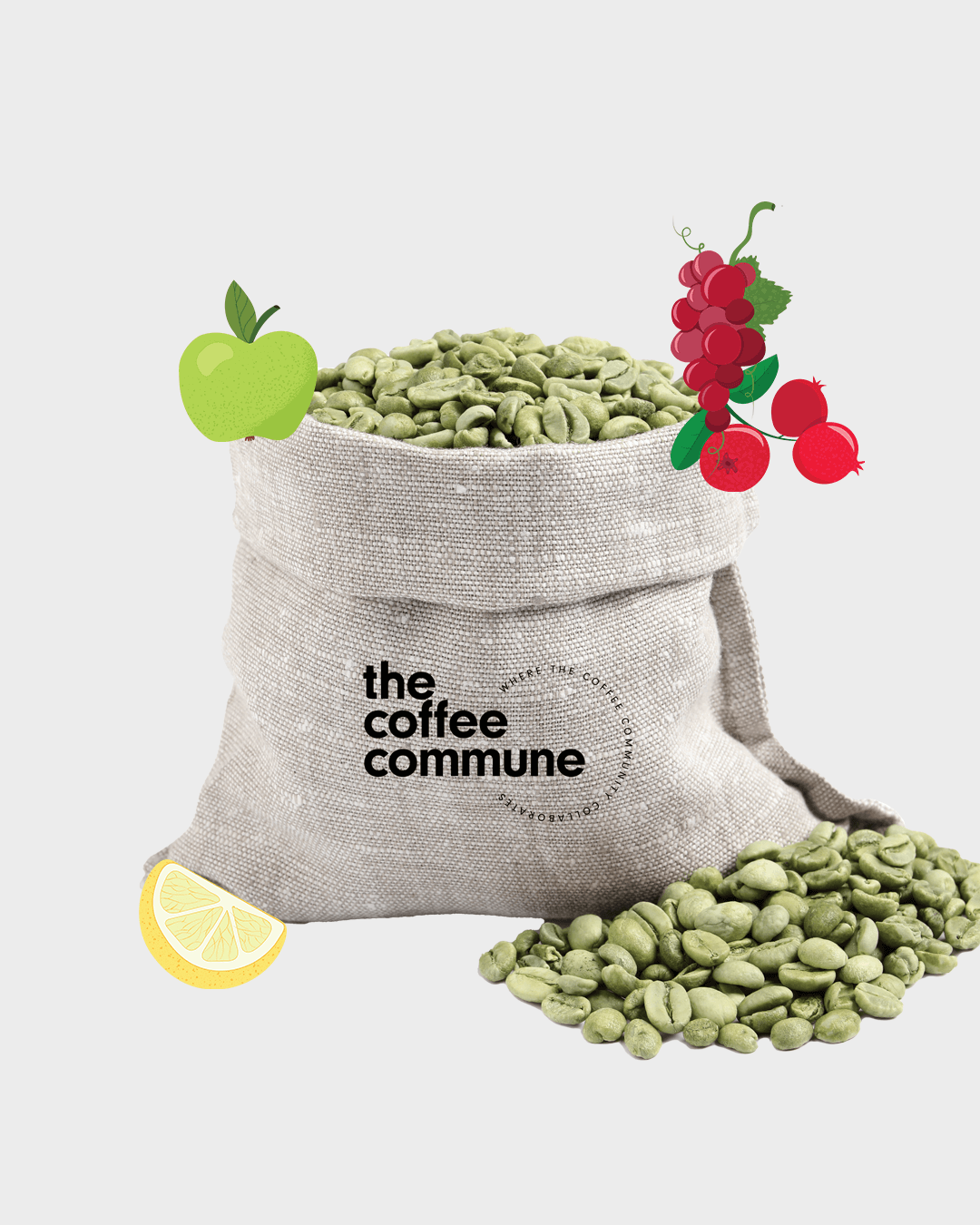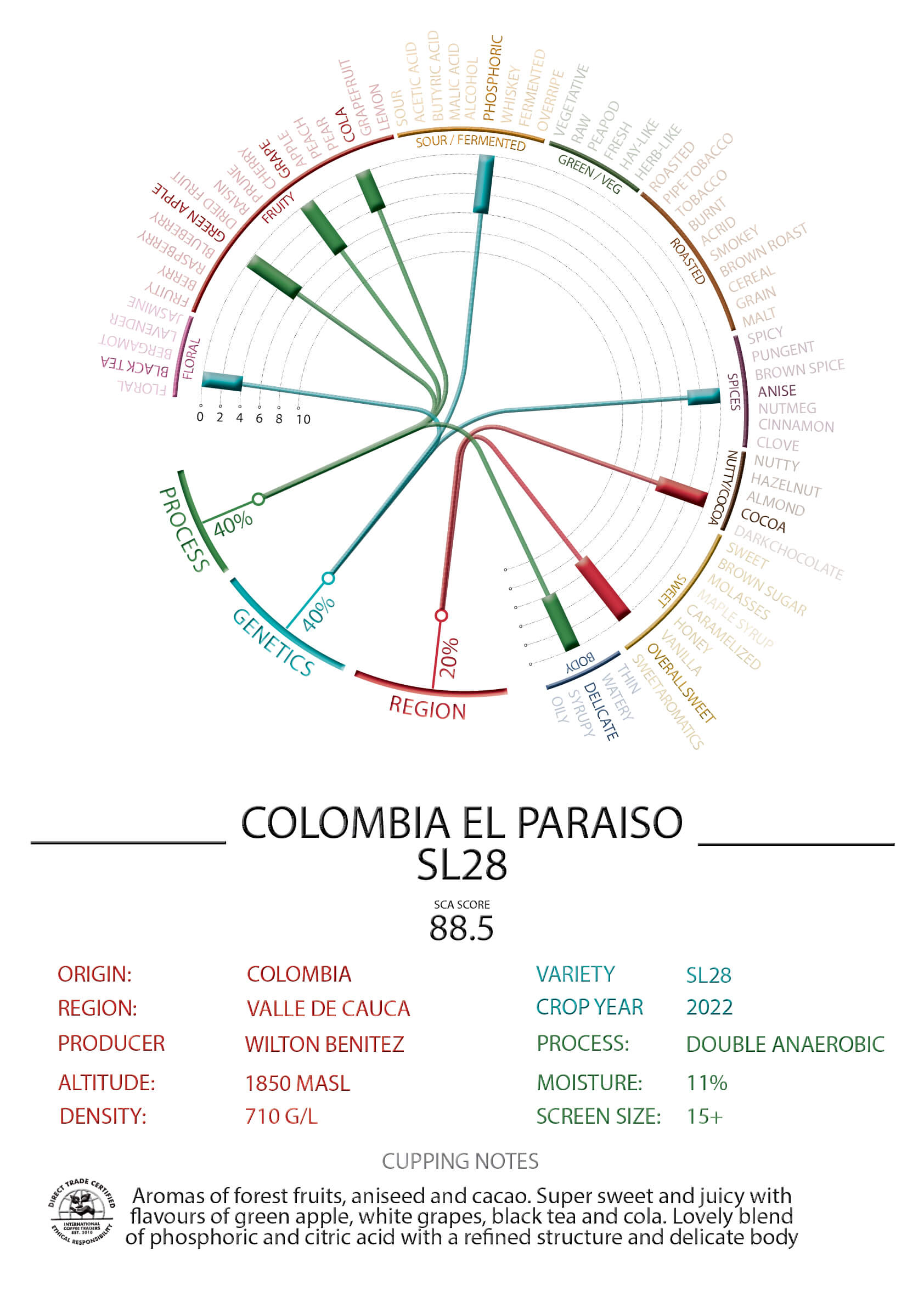SL28 is a coffee variety that is very well sought after by coffee aficionados. It has very high potential for refined flavour and excellent cup characteristics. It is among the most well-known and well-regarded coffee varieties of Africa. It has consequently spread from Kenya, where it was originally selected in the 1930's, to other parts of Africa (it is important in Arabica growing regions of Uganda in particular) and now to Latin America.
The variety is suited for medium to high altitudes and shows resistance to drought, but is susceptible to the major diseases of coffee. SL28 is notable for its rusticity—a quality meaning that it can be left untended for years or even decades at a time, and then return to successful production.
There are SL28 trees in many parts of Kenya that are 60-80 years old and still productive. SL28 was selected at the former Scott Agricultural Laboratories (now the National Agricultural Laboratories, NARL situated at Kabete—more information below). Individual tree selections made at the Scott Laboratories during the 1935-1939 period were prefixed SL. Forty-two trees of various origins were selected and studied for yield, quality, and drought and disease resistance.
SL28 was selected in 1935 from a single tree in a population called Tanganyika Drought Resistant. In 1931, the senior coffee officer of Scott Labs, A.D. Trench, conducted a tour of Tanganyika (now Tanzania). According to historical documents, he noticed a variety growing in the Moduli district that appeared to be tolerant to drought, diseases and pests. Seed was collected and brought back to Scott Laboratories, where its drought resistance was confirmed.
It was widely distributed until superseded by its progeny, SL28. SL28 was considered the prize selection of this period of intensive breeding.
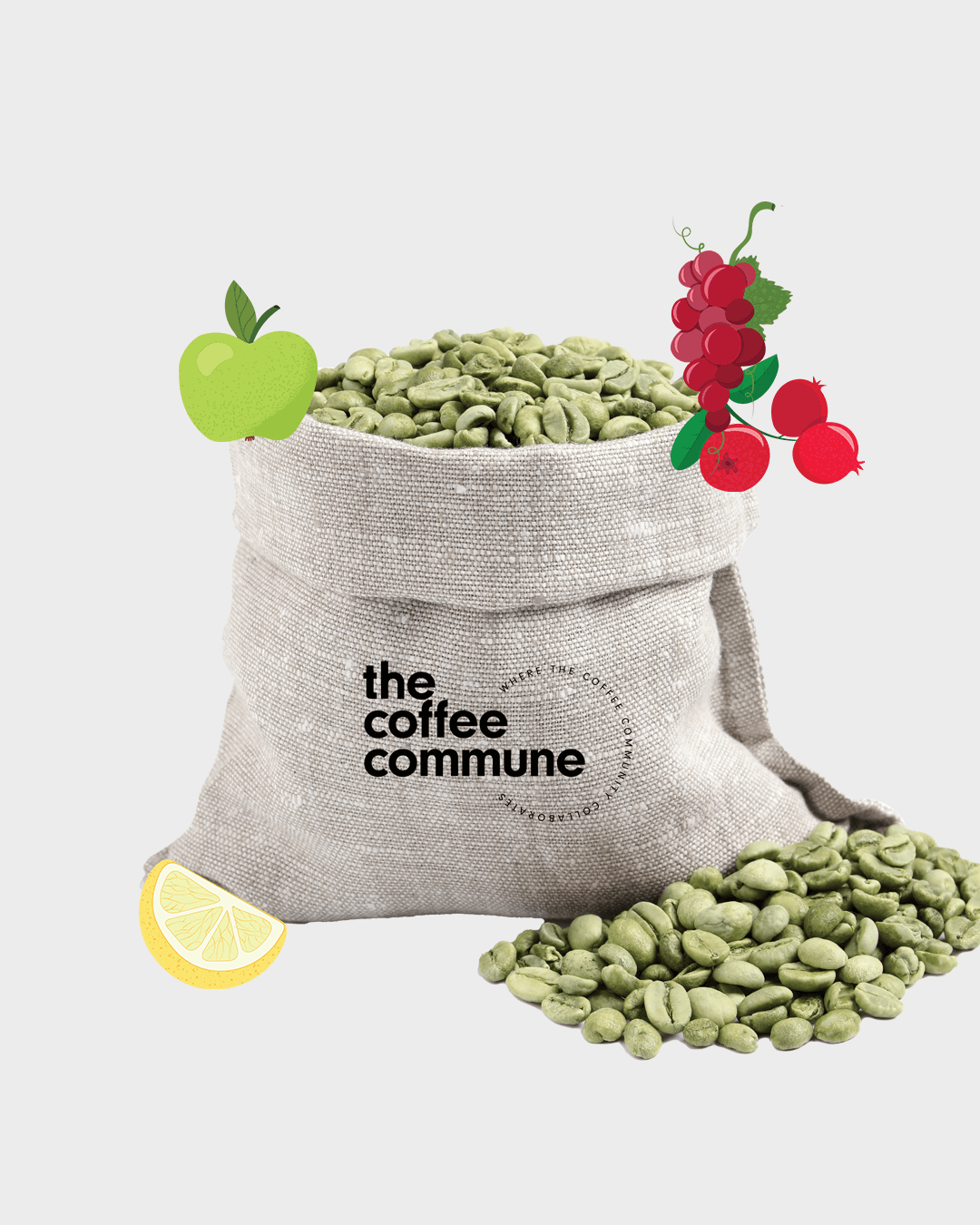
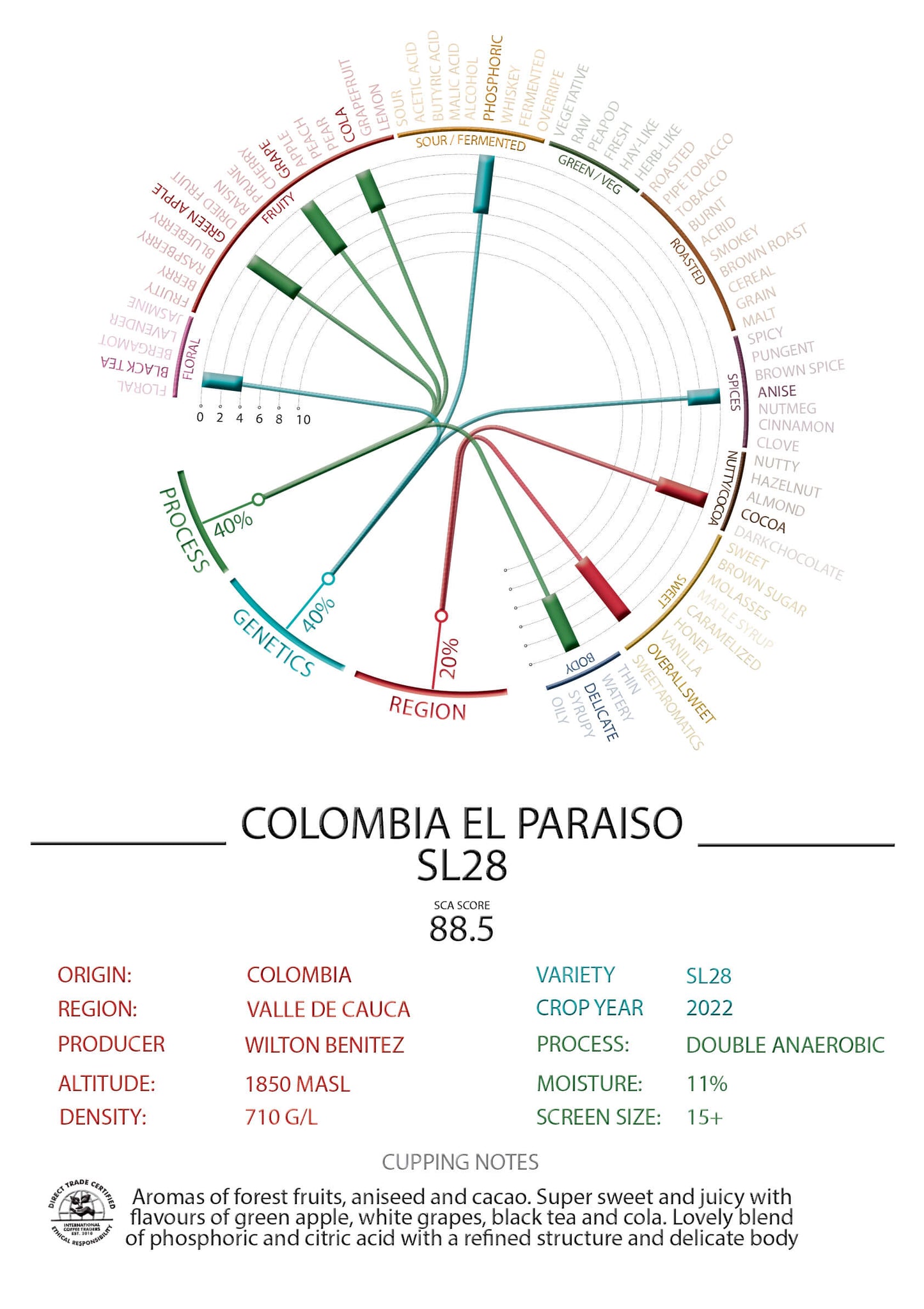
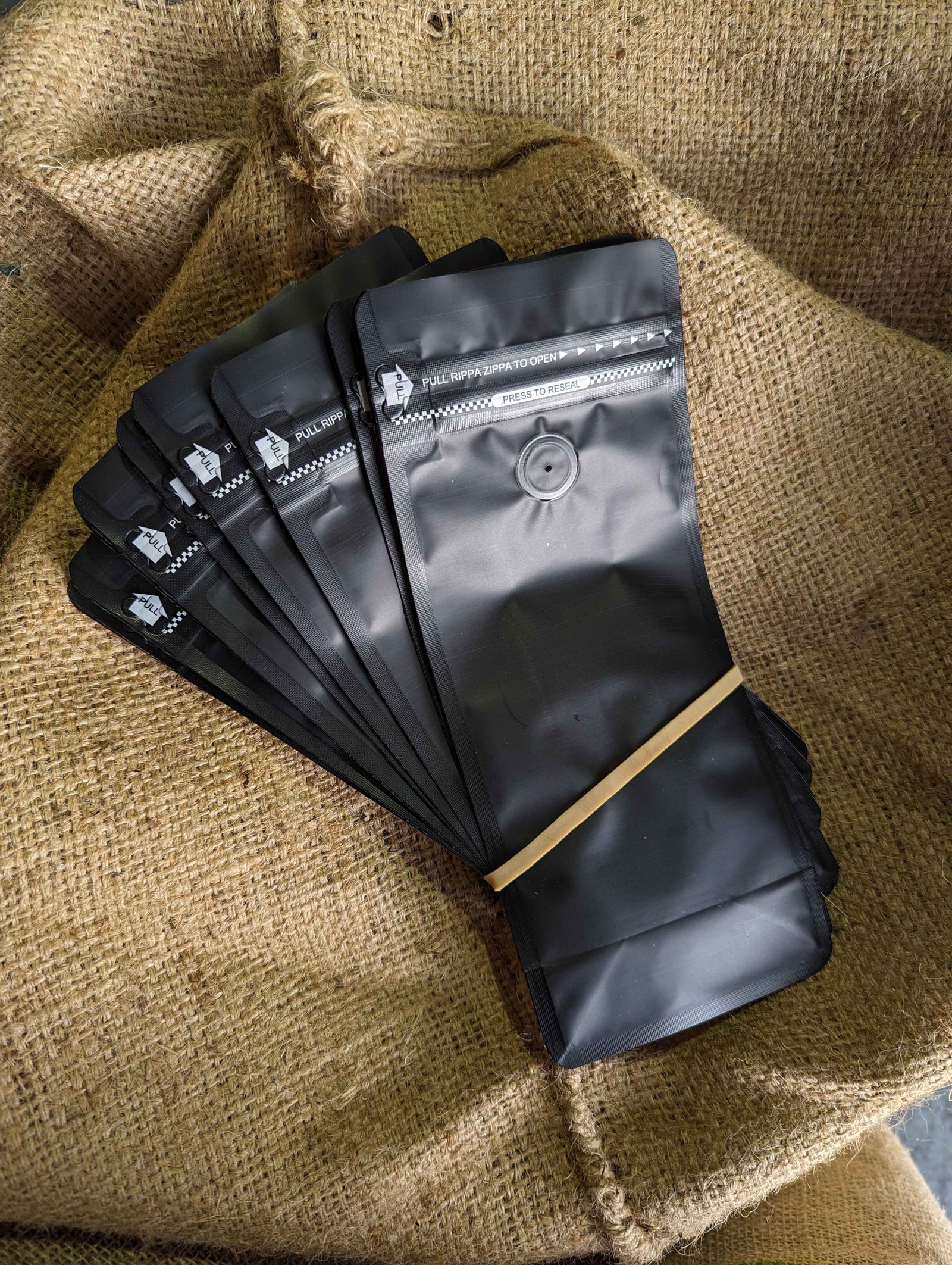 Matte Black Coffee Bag Bundle - With Valve & Rippa Zippa
Matte Black Coffee Bag Bundle - With Valve & Rippa Zippa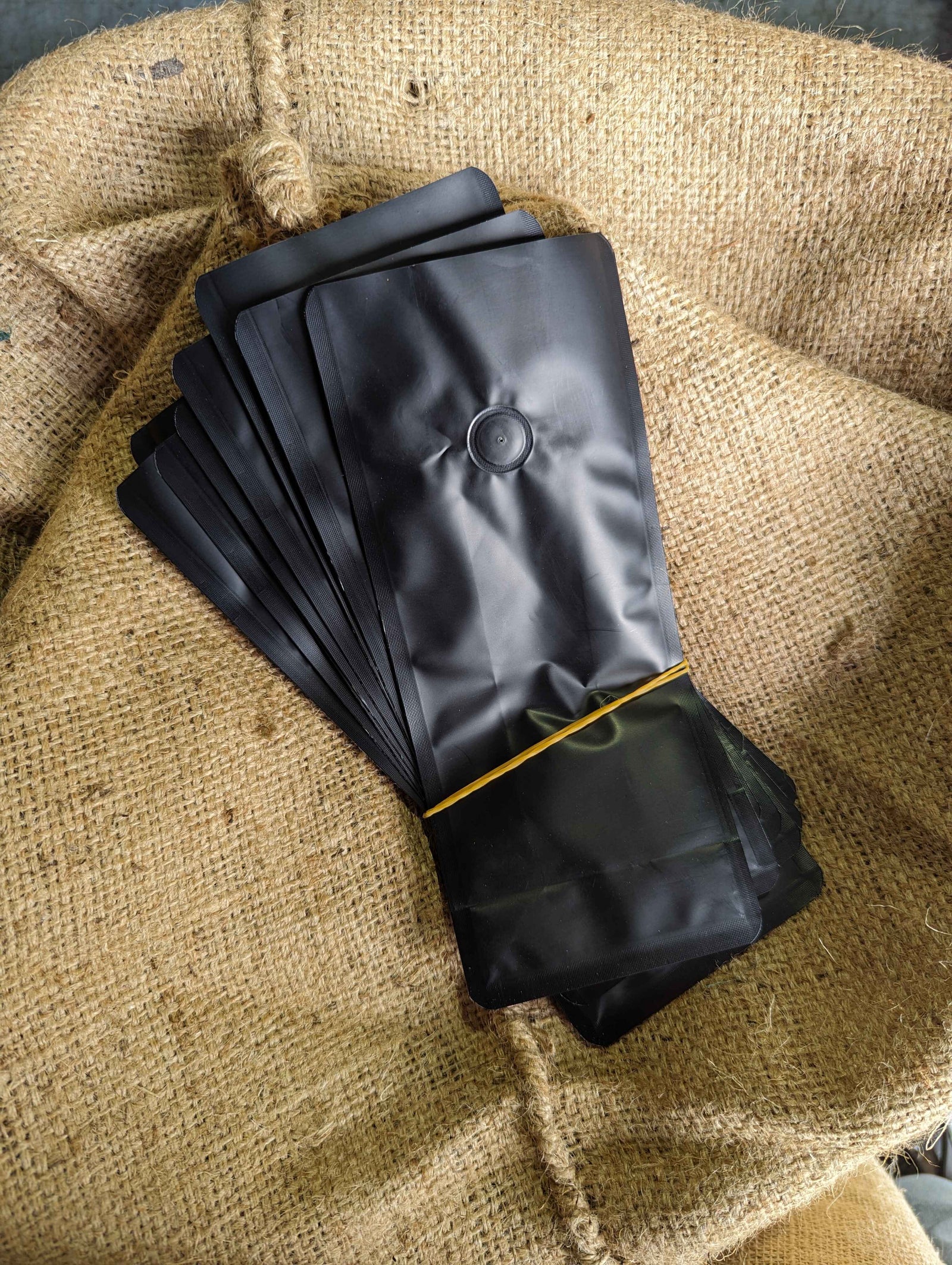 Matte Black Coffee Bag Bundle - With Valve
Matte Black Coffee Bag Bundle - With Valve
